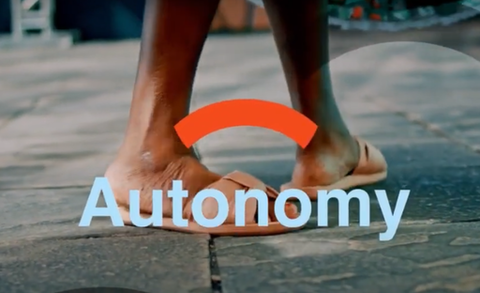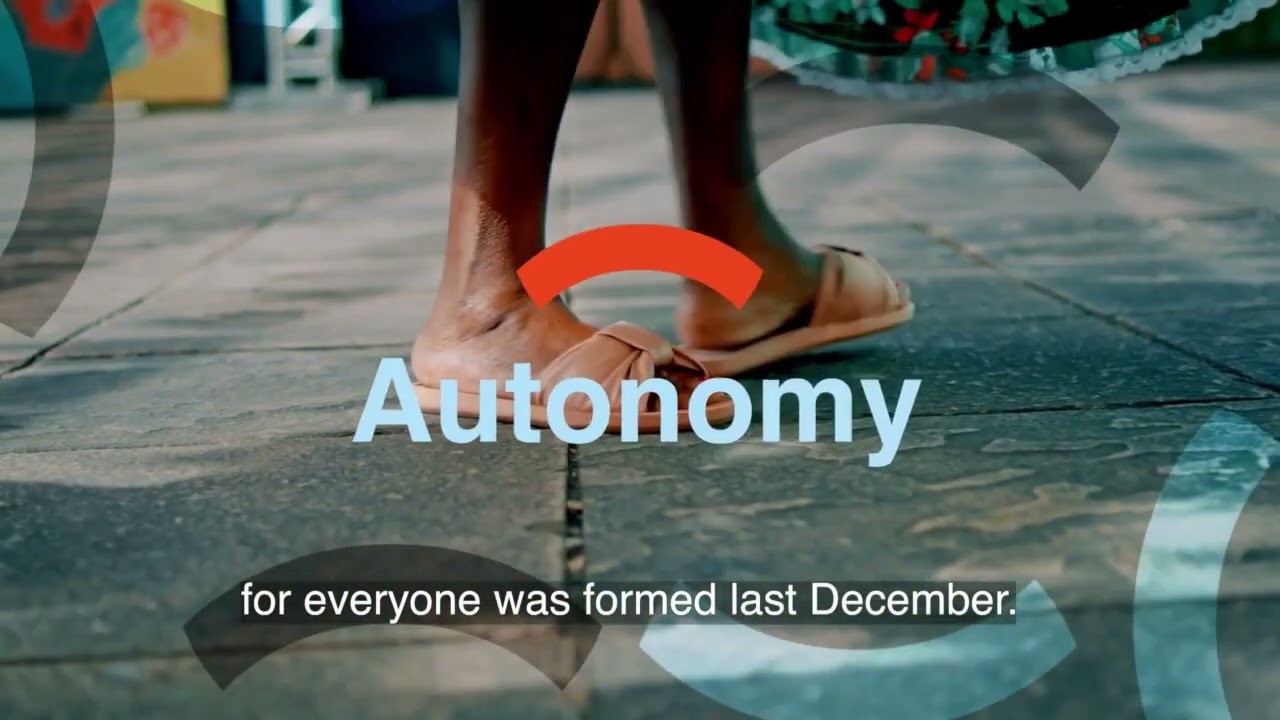Catalysing
Action
Catalysing
Action
Effective climate action that limits the planet to within 1.5 degrees Celsius of warming and guarantees a just transition will require trillions of dollars of investment, with business and industry leaders, policymakers, financiers, investors, workers and civil society leading the charge.
Climate philanthropy is increasing, but not at the pace of climate risk, and still represents less than 2% of total philanthropic giving, according to ClimateWorks Foundation’s Funding Trends 2022 report. At the same time, climate change is the biggest amplifier of inequality, exposing billions of highly vulnerable people to climate change.
Laudes Foundation is supporting partners at the forefront of this agenda, driving action to address the intersection of climate change and inequality, and helping business leaders, policymakers, financiers and investors be a force for good.
The Labora fund
Protecting labour rights
Brazil is a country in deep transition. Since the 2017 labour rights reform, workers’ rights have been continuously eroded and the number of people living in poverty has reached 62 million, or 29% of the population. With the election of a new government in 2023, civil society is again invited to review the labour right law to promote decent work and reduce inequality.
Building on these opportunities, the Labora Fund, or Fundo de Apoio ao Trabalho Digno, was launched in December 2022 to promote labour rights reforms across Brazil. Laudes Foundation is the key convenor and supporter of the fund, helping secure investments from Ford Foundation and Open Society Foundations to join the initiative. In total, USD 8.5 million has been committed to the urgent mission to promote decent working conditions for all, including protecting and advancing the rights of urban and rural workers and empowering those most vulnerable, such as informal, migrant, and care sector workers.
The fund is implemented and managed by local non-profit Fundo Brasil de Direitos Humanos. Its initial call for proposals resulted in a strong response, with the Labora Fund awarding 25 grassroot organisations working to defend workers’ rights in Brazil a EUR 10,000 organisational development grant each. In addition, five organisations will receive up to EUR 20,000 to develop initiatives that address worker rights in the country.
Labora is a culmination of an extensive commitment to our philanthropic giving in Brazil. Over the past 10 years, Laudes Foundation – and previously C&A Foundation and Instituto C&A – have supported fashion becoming a force for good in the country. By catalysing philanthropic action, Labora will continue and scale this legacy as we transition our work in labour rights in Brazil to a third-party organisation.

The Labora fund
Protecting labour rights
#BuildingLife
Changing European policy
Buildings currently account for almost 40% of all carbon emissions and can exacerbate social inequalities due to legacy planning development models and housing policies.
To help secure a just transition in Europe one of Laudes Foundation’s partners, the World Green Building Council (WorldGBC), is mobilising stakeholders across different countries through its flagship #BuildingLife project, launching national decarbonisation roadmaps for the building sector across Europe. Developed with the support of a coalition of more than 35 leading industry bodies, roadmaps on how to decarbonise the whole lifecycle of buildings have been launched in Ireland, Finland, Germany, the Netherlands, Poland, Spain and the UK, with Italy the most recent to launch in December.
This work had a direct impact on national policy in 2022. In the Netherlands the DutchGBC developed a Whole Life Carbon policy manifesto, which led to the Dutch Ministry for Housing and Spatial Planning announcing its intent to include embodied and whole life carbon in its new buildings legislation. Meanwhile, the UKGBC has developed a scorecard analysis of UK Government action against its roadmap policy recommendations.
WorldGBC is also working to strengthen international collaboration and engage more funders in efforts to decarbonise the built environment worldwide. At the Buildings Pavilion at COP27 in November, it was part of the coalition of Laudes Foundation partners and 15 national governments, led by the governments of France and the Kingdom of Morocco, that called for a Buildings Breakthrough for “near zero emissions and resilient buildings to be the new normal by 2030”.
Accelerating philanthropic investment on climate
With its ability to take risks, fund new ideas and invest long-term, philanthropic capital is a powerful catalytic force that can accelerate public and private investment and unlock the funds required to ensure a transition to a just, climate-resilient and regenerative economy. To achieve this, many more philanthropic organisations need to work together, and at scale.
Laudes Foundation is a founding partner of Giving to Amplify Earth Action (GAEA), a global World Economic Forum initiative to fund and grow new and existing public, private and philanthropic partnerships (PPPPs) and help secure the USD 3 trillion of annual financing needed to reach net zero, reverse nature loss and restore biodiversity by 2050. To date, GAEA has attracted 51 supporters and the community is continuing to grow.
We continue to support WINGS and Philea, together with the European Union and The Rockefeller Foundation, to encourage international funders to commit to the International Philanthropy Commitment on Climate Change (IPCCC). By signing the pledge, philanthropic organisations commit to using their resources, independence and influence to tackle climate change and inequality. The pledge is structured around seven pillars of action, including a commitment to consider climate change in relation to the source and management of our operational and any endowed funds; to allocate resources to accelerate climate action; and be transparent about the steps taken in relation to each pillar.
The commitment launched in 2021 ahead of COP26 in Glasgow with the support of around 170 philanthropic organisations. It now has 626 philanthropic organisations committed to taking climate action.
Our commitment to the IPCCC
Leverage and co-funding
We know that to achieve scale, we need collaboration. While co-funding is critical to achieving impact at scale, leveraged resources are an important indicator of our success at catalysing action.
As our work and impact deepens, we are gaining opportunities to help influence and unlock additional funding and support for our partners. Last year, we helped drive EUR 63.5 million of co-funding to partner organisations where these resources directly supported the implementation of Laudes Foundation’s partners’ initiatives, and EUR 95.5 million of leveraged funds, where resources were committed by others as a direct or indirect result of our initial investment.
Co-funding/Leverage
Source of funding
In addition, our first industry transformation initiative, Fashion for Good, has unlocked over EUR 1.1 billion in new capital for its innovators over its first six years of operation.
Catalysing Action
Fostering Industry Transformation
Philanthropy has a powerful role to play in spurring solutions to challenges that others – often government or industry – aren’t able or willing to tackle. When it comes to supporting innovations that can unlock industry change, or building powerful networks that can drive the collaboration needed for such change, Laudes Foundation has made this approach a hallmark of our work. In fact, Laudes Foundation has developed two such industry transformation initiatives to address opportunities in the fashion and built environment sectors.
Fashion for Good
Fashion for Good (FFG) celebrated its fifth anniversary in 2022. Since its launch, Fashion For Good has – in its ambition to inspire change and drive the collective movement to make fashion a force for good – partnered with 26 leading brands (representing more than 12% of the global fashion industry). As the organisation looks towards the next five years, the focus is on scaling the most promising solutions disrupting the global supply chain, through deep partnerships with leading innovators, industry pioneers, and enabling investors.
Through its Innovation Platform, Fashion for Good connects those working on sustainable innovation with brands, retailers, manufacturers and funders to bring new ideas and technologies from niche to norm. Since its launch, it has supported 159 innovators, conducting 326 pilots in partnership with brands and retailers, and unlocking EUR 1.1 billion of private capital to scale their work.
With a focus on practical action, Fashion for Good facilitates consortium style engagements unpacking the most challenging spots in the supply chain to validate next generation solutions that will fundamentally transform business as usual. Building on the success of the Full Circle Textiles Cellulosics consortium in 2021, Fashion For Good developed the next phase aimed at polyester recycling. The most common fibre in the world, polyester represents 73% of textiles that are landfilled or incinerated annually.
Textile-to-textile chemical recycling is crucial for operating in a closed loop system and reducing the environmental impact of textile waste. In 2022, the project brought together nine brands with four innovators to find ways to tackle the fossil-based materials issue. The innovators will be producing chemically recycled polyester for use in fabric and garment production from post-consumer textile waste. This project aims to validate the chemical recycling technologies and the scaling potential of the innovations. The results will be used to prompt further implementation and offtake agreements to drive chemical recycling in the industry, and mobilise more funding into the technology.
The Fashion for Good Museum, located in the heart of Amsterdam, provides a space to learn about the past, present and future of the fashion industry as well as discover actionable ways to make a difference. Since opening, the museum has welcomed over 100,000 visitors. In 2022, Fashion for Good launched its latest exhibition, ‘Knowing Cotton Otherwise’, highlighting the relationship between cotton and the fashion industry, and the role of cotton in an increasingly intertwined web of global cultures.
159
innovators
326
pilots in partnership with brands and retailers
€1.1
billion private capital unlocked to support innovators
102k+
visitors to the Fashion for Good Museum
Built by Nature
With the building space expected to double globally by 2050 we must reimagine the way we build, from a carbon-intensive industry to one that helps remove more carbon from the atmosphere than it adds.
Built by Nature is a network and grantmaking fund, dedicated to accelerating the timber and bio-based material building transformation in Europe.
Since its launch in October 2021, Built by Nature’s pan-European network has grown to 26 organisations from 12 countries. The Built by Nature Fund supported 10 initiatives in 2022. To date, the Fund has allocated EUR 2.3 million to projects and leveraged a further EUR 2.6 million in co-funding (52%).
Built by Nature-funded projects work across the built environment value chain: from architects to policymakers and insurers to developers. For example, along with the City of Amsterdam and AMS Institute, Built by Nature is co-funding CircuLaw, a digital platform, open public service and community of practice for policymakers and civil servants in the Netherlands. CircuLaw’s aim is to overcome regulatory silos and the complexity of the policy landscape to accelerate cities’ adoption of timber. By the end of 2022 it had already unearthed over 30 instruments to benefit timber construction in the Netherlands.
55
frontrunner representatives from 26 organisations in 12 countries
3
international networks - Spain, The Netherlands, United Kingdom
€2.3
million invested in innovation funding
Attracting
€2.6
million in co-funding
Catalysing Action
The Labora fund
Protecting labour rights
Catalysing Action
Our commitment to the IPCCC
Commitment
What Laudes is doing
Education and learning
We will ensure that our boards, investment committees, staff, volunteers and stakeholders are informed about the systemic causes, impacts and solutions of climate change, and the implications for our work.
As a learning organisation, we commission new research to consistently evaluate ourselves as well as the initiatives we fund, to help our team, governors, partners and stakeholders understand the system in which we operate, what works and what doesn’t.
During our strategy development process, we created an Economic System Map, published under a Creative Commons licence, to visually reflect, test and share structural issues within the economic system and industries with which we work. In our annual report, we review the progress we’re making to change the system in line with our Theory of Change.
Commitment of resources
Recognising the urgency of the situation, we will commit resources to accelerate work that addresses the root causes of climate change or adaptation to its impacts. If our governing document or other factors make it difficult to directly fund such work, we will find other ways to contribute, or consider how such barriers might be overcome.
With a EUR 225.6 million portfolio of active grants, Laudes Foundation is accelerating climate action by supporting brave, innovative efforts that inspire and challenge industry to harness its power for good. In 2022, EUR 35.6m (56%) of our annual commitment was directed towards our climate outcomes.
Integration
Within the design and implementation of our programmes, we will seek opportunities to contribute to a fair and lasting transition to a net zero world, and to support adaptation to climate change impacts, especially in the most affected communities.
We cannot address the climate crisis without ensuring a just transition. Laudes Foundation is working at the intersection of climate change and inequality, investing 44% of its 2022 annual commitment in partnerships promoting an inclusive economy.
Endowments and assets
We will consider climate change in relation to the source and management of our operational and any endowed funds. We will seek to align our investment strategy and its implementation with a rapid and just transition to a net zero economy.
Laudes Foundation’s funding is managed by Constanter’s Investment Office. Constanter strives to ensure its investments are aligned with its mission, going beyond legal and regulatory compliance to express our values as well. Informed by responsible investment guidelines, which are implemented through its asset managers and partners, it aims to exclude assets that are incompatible with our values or fail to meet international standards. It seeks to integrate Environmental, Social and Governance (ESG) principles and uses them to guide manager selection, engaging actively to influence positive change.
Operations
We will take ambitious action to minimise the climate impact of our own operations, which may include for example travel, buildings and procurement.
We are measuring our carbon footprint and constantly looking for ways to reduce the impact of our operations.
Influencing and advocacy
We will seek opportunities to work with others, to amplify the voices of frontline communities, and to encourage and support more ambitious action on climate change by our key stakeholders, partners and audiences; these may include businesses, local or national governments, multilateral organisations, donors and funders, individuals or civil society movements.
A core part of our strategy is to support partners’ efforts to advocate for policy change, while ensuring the voices of workers are taken into consideration. We’re also funding initiatives to ensure climate science is reflected widely across global media titles to influence mindsets and create pathways for change.
Transparency
We will collect and publish information annually on the actions we have taken against the six pillars listed above to share our progress and identify areas for improvement. We will continue to develop our practice, to collaborate, and to learn from each other.
We’re committed to being transparent about our progress and our challenges when taking steps towards the seven pillars above. We do this by actively participating and sharing our journey with other stakeholders, particularly funders, as we did at various events hosted by WINGS and Philea, and at COP27 and the World Economic Forum’s annual meeting, as well by sharing our progress annually in our annual report.


Share